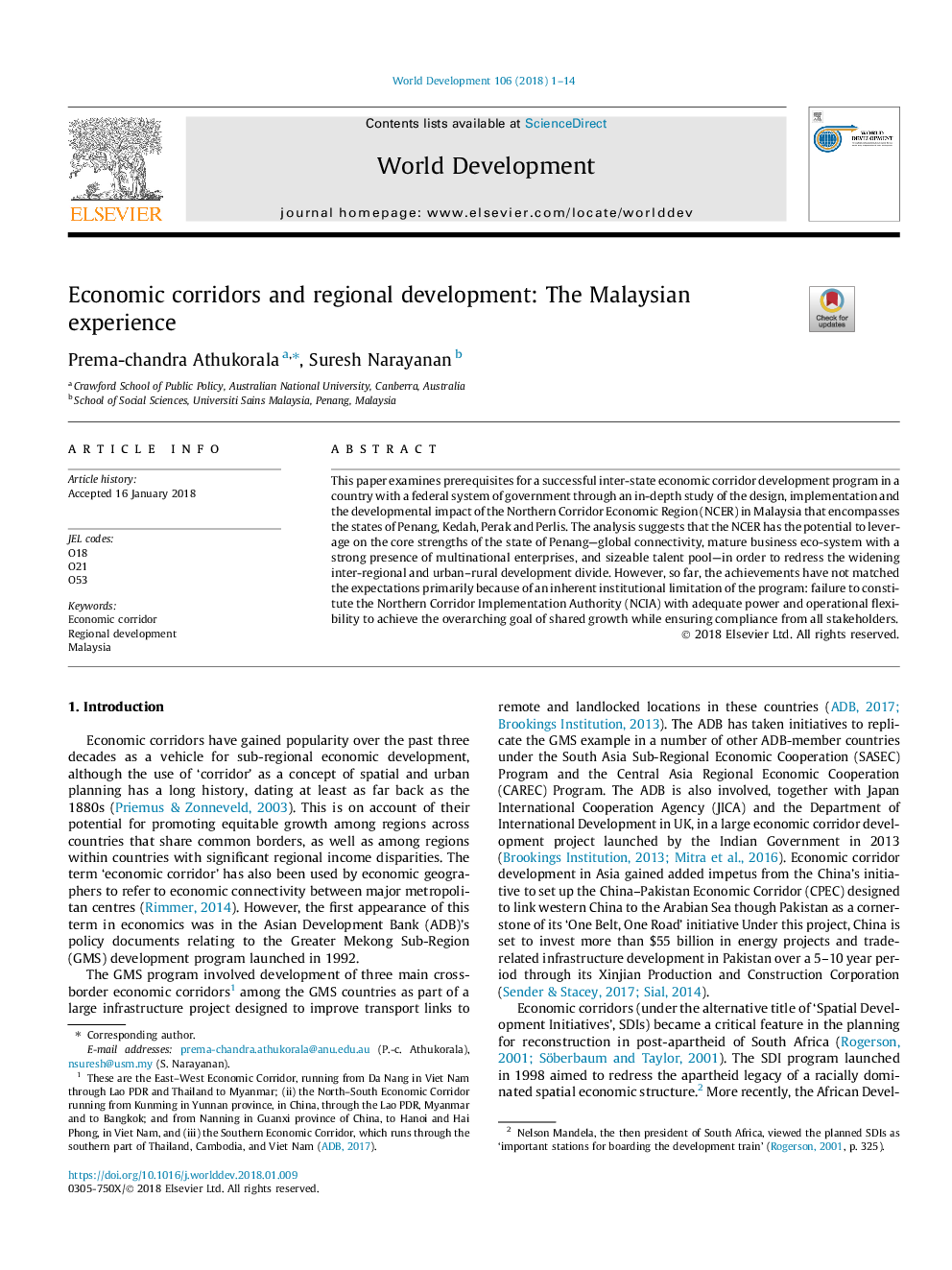| Article ID | Journal | Published Year | Pages | File Type |
|---|---|---|---|---|
| 7391768 | World Development | 2018 | 14 Pages |
Abstract
This paper examines prerequisites for a successful inter-state economic corridor development program in a country with a federal system of government through an in-depth study of the design, implementation and the developmental impact of the Northern Corridor Economic Region (NCER) in Malaysia that encompasses the states of Penang, Kedah, Perak and Perlis. The analysis suggests that the NCER has the potential to leverage on the core strengths of the state of Penang-global connectivity, mature business eco-system with a strong presence of multinational enterprises, and sizeable talent pool-in order to redress the widening inter-regional and urban-rural development divide. However, so far, the achievements have not matched the expectations primarily because of an inherent institutional limitation of the program: failure to constitute the Northern Corridor Implementation Authority (NCIA) with adequate power and operational flexibility to achieve the overarching goal of shared growth while ensuring compliance from all stakeholders.
Related Topics
Social Sciences and Humanities
Economics, Econometrics and Finance
Economics and Econometrics
Authors
Prema-chandra Athukorala, Suresh Narayanan,
